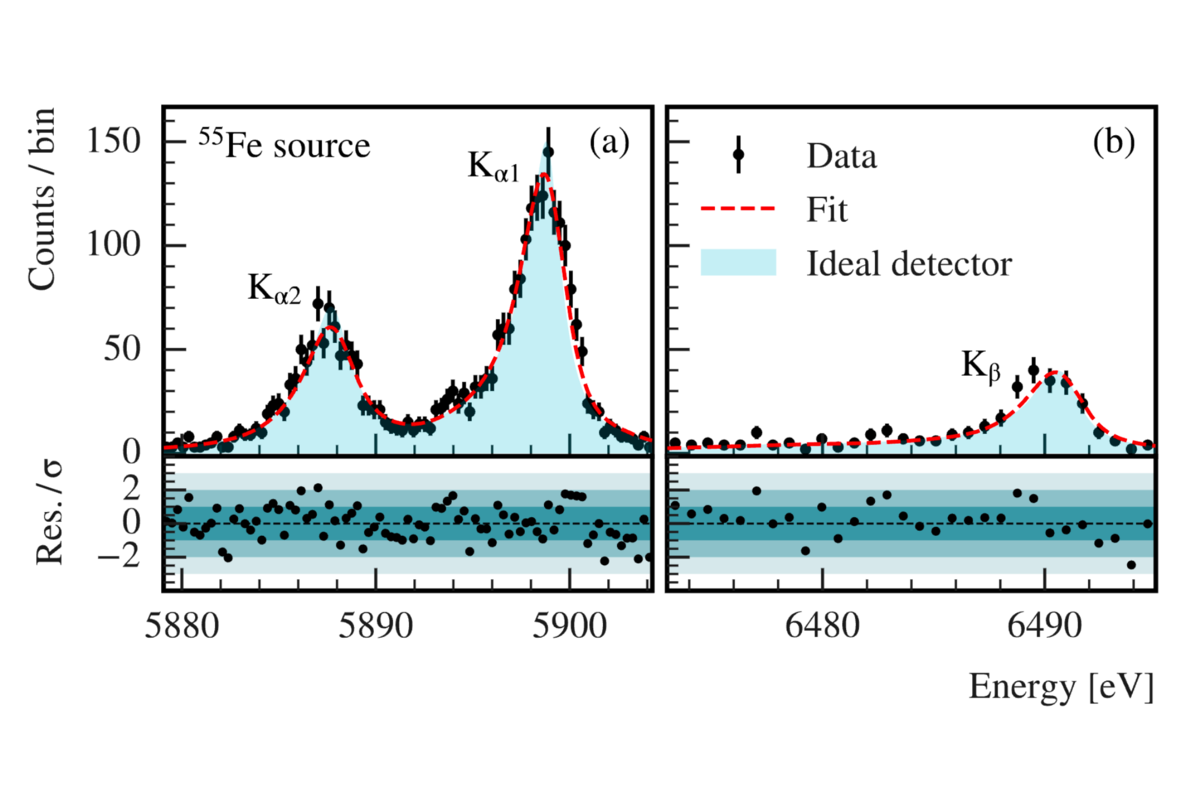World leading energy resolution for future dark matter searches
A team of scientists from KIT and University Heidelberg have developed a new type of detector, a variant of magnetic microcalorimeters (MMCs), that can measure X-rays with unprecedented precision as needed for high-resolution X-ray emission spectroscopy. The researchers tested the performance of the MMC using a 55Fe source, which emits X-rays with a known energy of about 6 keV. They applied a sophisticated data analysis method to extract the signal from the noise and reconstruct the energy of each X-ray. They found that the MMC can achieve a resolution of 1.25 eV, which means it can distinguish X-rays that differ in energy by less than 0.02%. This is the best resolution ever reported for energy-dispersive detectors for soft and tender X-rays. The researchers also identified the factors that limit the resolution, such as fluctuations in the temperature of the detector. They estimated that the theoretical limit of the MMC is about 0.5 eV, which could be reached by improving the design and operation of the detector. The MMC technology has many potential applications, such as studying the chemical and physical properties of materials, detecting trace elements in biological samples, and searching for dark matter particles. The team is planning to use MMC-based detector technology for a proposed experiment called DELight, which will look for dark matter interactions with superfluid helium.
The results have been submitted to “Applied Physics Letters” (detector description) and “Physics Review D” (statistical analysis) and are also available as preprints on arxiv:
Contact: Prof. Torben Ferber, Prof. Markus Klute


